Discussions regarding the future work and strategic direction of the Ferguson Marine shipyard in Scotland took place during a Thursday meeting of the Public Audit Committee.
The focus was on potential new business opportunities, compliance with subsidy control regulations, and balancing business decisions with political strategies.
The Scottish Government is actively exploring new business opportunities for Ferguson Marine, including collaboration with BAE Systems and other commercial customers. The discussions also addressed the implications of state aid regulations on the company’s ability to secure future vessel procurement contracts.
The content of this article is based on the transcript from the Public Audit Committee’s draft meeting on May 30, 2024. Present at the meeting were Richard Leonard (Lab, Central Scotland) as Convener, Jamie Greene (Con, West Scotland) as Deputy Convener, Colin Beattie (SNP, Midlothian North and Musselburgh), Willie Coffey (SNP, Kilmarnock and Irvine Valley), and Graham Simpson (Con, Central Scotland). Representatives from the Scottish Government included Colin Cook, Gregor Irwin, and Dermot Rhatigan. The committee was assisted by Clerk Lynn Russell.
Jamie Greene, Deputy Convener, raised concerns about the implications of subsidy control and state aid regulations on vessel procurement. He questioned whether these regulations might prohibit the government from directly awarding future vessel contracts to Ferguson Marine.
Colin Cook from the Scottish Government’s Strategic Commercial Assets Division responded, “We have taken advice on the business plan submitted by Ferguson Marine. That advice looks at the viability of the business plan and any issues that might raise in terms of subsidy control and the ability to pass the commercial market operator test.”
Cook added that the final decision rests with the transport ministers: “Ultimately, it is a transport decision in the sense that ministers need to ensure that they are content with the procurement strategy that they decide upon for the small vessel replacement programme.”
Greene further inquired about other potential business opportunities for Ferguson Marine. Cook highlighted that Ferguson Marine has been actively seeking new ventures: “The team at Ferguson Marine has a commercial arm, and I know that it is looking at some other opportunities. It has recently done work for BAE Systems, for example, and it will continue to talk with it and other potential customers.”
The recent collaboration with BAE Systems involved Ferguson Marine completing hull sections for the UK’s Type 26 frigate programme. The sections were transported from Ferguson Marine’s yard in Port Glasgow to BAE Systems’ facility in Govan last month.
BAE Systems commented, “We have outsourced steelwork fabrication for a limited number of units to support delivery of the Type 26 programme. This is typical for a programme of this scale and offers an opportunity for UK companies to play their part on this national endeavour.”
The Type 26 programme, aimed at replacing the older Type 23 frigates, involves constructing eight state-of-the-art anti-submarine warfare frigates to enhance the operational capabilities of the Royal Navy.
The steel units produced by Ferguson Marine are key components of HMS Belfast, the third ship in the Type 26 series. This outsourcing of steelwork fabrication to various UK shipyards like Ferguson Marine is part of a deliberate effort to distribute workload effectively and maintain project timelines.
Greene also posed a broader question regarding the balance between business decisions and political strategies. He asked Gregor Irwin of the Scottish Government, “Which of those decisions are made purely as good business decisions, and which are made as political and strategic decisions?”
Irwin explained, “In my role as accountable officer, I am very much focused on the value-for-money case for investment in a strategic commercial asset. I would also be mindful of the wider economic benefits that result from an intervention.” He noted that Ferguson Marine and Prestwick Airport are significant for local economies, stating, “Ferguson’s is the last commercial shipbuilder on the Clyde. Prestwick is an increasingly diverse business with a unique asset in the form of that long runway.”
Greene questioned how the government responds to accusations from the commercial sector that interventions might distort the market.
Irwin stressed the importance of adhering to legal frameworks: “We operate within a clear legal framework. We have already referred to the subsidy control framework and the importance of being able to satisfy the commercial market operator test, which requires you to act as though you were a commercial market operator.”


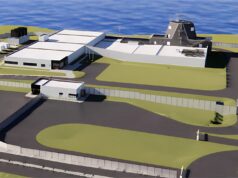
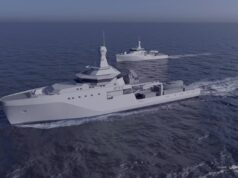
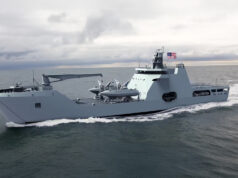
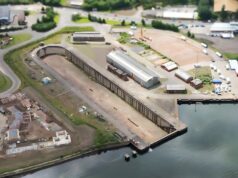
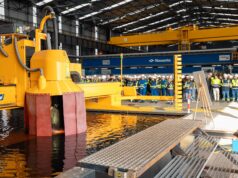
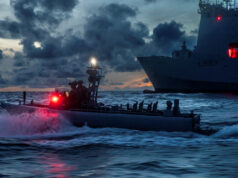

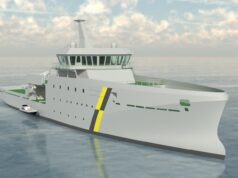

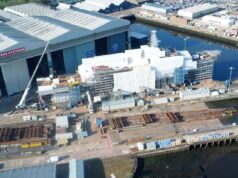

Why I wonder was no one from the global maritime industry invited or at least in attendance if this report is true. Bae Systems are not the only shipbuilder in Scotland. Why was modern day financial mechanisms not raised. What export opportunities were presented and discussed. We seem to go around in circles. What background does Colin Cook from the Scottish Government’s Strategic Commercial Assets Division have in shipbuilding and repair to make informed judgements on future prospects?
all a load of haggis mate….